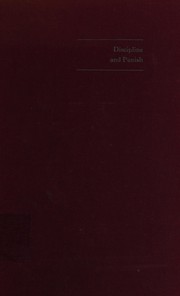

7 Ibid 10, Instead, it became ‘necessary for the law to reach and manipulate the body of the convict’. The body of the convict was no longer treated as a site of torture for public spectacle. The decrease in punishment as a spectacle of public torture and interrogation was matched by an increase in a different type of power – what he calls ‘discipline’ – which was justified as being more ‘humane’. By the late 18 th and early 19 th century, Foucault writes, ‘the gloomy festival of punishment was dying out, though here and there it flickered momentarily into life’. 3 Ibid 1-5, 7-8 Through interrogation, convicts would confess their crimes in formal ceremonies involving oath making and ‘judicial torture’, where the accused accepted the charge, recognized its truth, and, quite importantly, helped produce the truth of that matter. Foucault details how punishment took the form of public torture so that members of society could witness the absolute power of the sovereign and therein learn to obey, because crimes were committed against the sovereign. The absolutist, monarchical or sovereign form of power involved punishment as a theatrical ritual of public torture. In a key text from that period, Discipline and Punish, Foucault articulates several modes of power: absolutist, juridical, and disciplinary.

This middle period consists primarily of Discipline and Punish (Vintage, 2nd Ed, 1991) History of Sexuality Vol I (Random House, 1978) and, Society Must be Defended (Picador, 2003).


1 English language scholars accept that his work falls into three periods. The hope is to suggest and gesture towards uses of disciplinary power in legal analysis.įoucault discussed and theorised discipline in what English-language scholars of his work call his genealogical period. This explanatory post broadly examines discipline and disciplinary power by considering how Foucault conceptualises the panopticon (and panopticism) to articulate it, how it differs from juridical-sovereign power, and its (contentious) interrelation to law and liberalism. Photo: S Young.ĭiscipline is one of Foucault’s most intriguing and widely discussed concepts. High Court of Australia Building (Canberra).


 0 kommentar(er)
0 kommentar(er)
